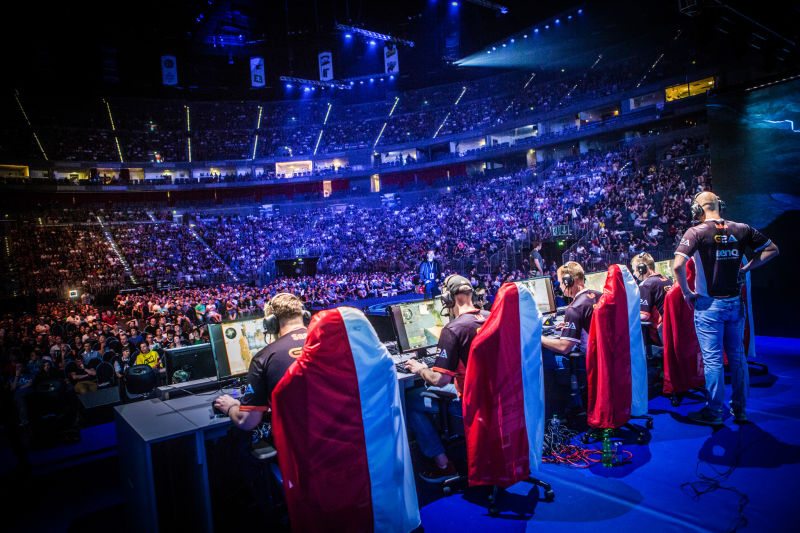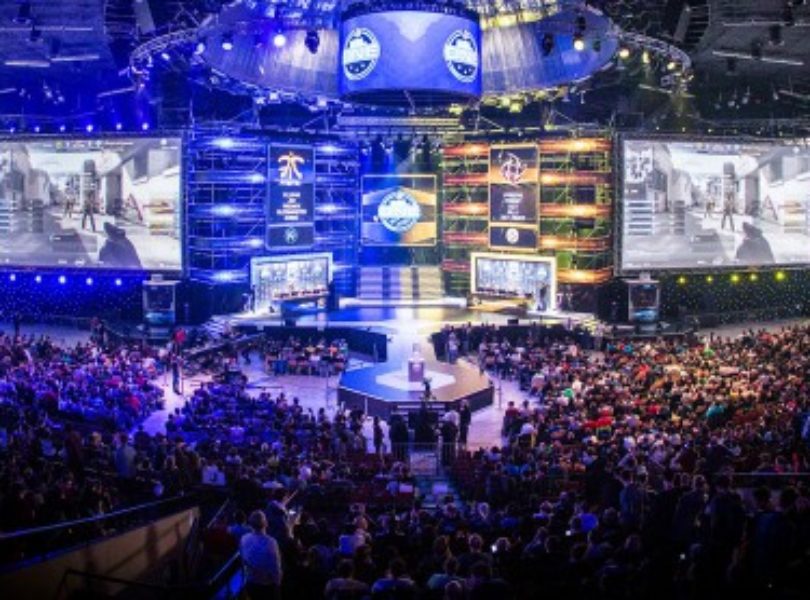I may be the Old School Gaming Specialist of the Digital Crack Network, but retro gaming isn’t my only passion. In addition to video games old and new, comics, technology, and any bar that has a Dollar Shot night, I love sports. My favorite American sports teams are, in order of love and history, The Miami Dolphins, the University of Miami Hurricanes, the Miami Heat, and the Florida Panthers. Do not ask me about the Miami Marlins unless you want to hear a lengthy, alcohol-fueled diatribe about how Marlins owner Jeffrey Loria is a baseball serial killer who escaped Montreal with his money secured and his butcher knife bloody.
(For those of you who have not figured out my geographic preference, here’s a hint: it’s not Ohio.)
As a sports fan, I regularly ingest a heaping dose of ESPN. I have tuned into ESPN since its early 80s cable NHL days, and they are my sports go-to. I am not terribly fond of the network’s current state – it’s like Fox News with screaming ex-athletes instead of political hotheads – but I need my daily sports fix and haven’t found a suitable alternative that doesn’t involve multiple websites, RSS feeds, and Facebook follows. My daily routine involves visiting multiple web sites, and espn.com is among those I visit.
It was in my latest visit to the site that I did a double take. Among their Top Headlines was an entry that twigged my gamer persona:
League of Legends shakeup: 3 teams must sell
A League of Legends scandal? On ESPN? E-sports must be a real sport now!
The concept of e-sports is nothing new. Nintendo popularized the idea of competitive gaming back in 1990 with the Nintendo Word Championships, but some form of competitive tournament gaming can be traced to Spacewar at Stanford University, all the way back in 1972. Hell all you need is two people to say, “I can beat your ass in such-and-such game”, and you have a potential e-sport tournament.
There were other tournaments back in the day, most notably QuakeCon, Major League Gaming (MLG), and the Cyberathlete Professional League (CPL), but most of them were on the fringes of popular culture, existing in their own orbits. They aimed to be a legitimate e-sports league, but e-sports was far from a thing in those days.
Things began to change in Asia during the late 1990s and entering into 2000. Leading the way was South Korea, which benefited from its large broadband networks and rabid fan base. The Korean e-Sports Association was founded in 2000 as part of South Korea’s Ministry of Culture, Sports and Tourism. Yes, that’s right; the South Korean GOVERNMENT was funding competitive gaming! The games of choice were Blizzard’s Starcraft and Warcraft III, and tournaments for those games in the country were massively popular, even reaching a televised audience. E-sports became a thing in South Korea and other Asian countries, but was a curious oddity everywhere else.
 There were some televised events in Germany, France, and the United Kingdom, but competitive gaming was still on the fringes. Stateside, tournaments for Madden NFL were shown on ESPN, but not with any real prominence. Other venues, like DirecTV, and G4, threw their hats into the ring but didn’t get much traction out of it. There needed to be a massive sea change if e-sports was to flourish.
There were some televised events in Germany, France, and the United Kingdom, but competitive gaming was still on the fringes. Stateside, tournaments for Madden NFL were shown on ESPN, but not with any real prominence. Other venues, like DirecTV, and G4, threw their hats into the ring but didn’t get much traction out of it. There needed to be a massive sea change if e-sports was to flourish.
That massive sea change came in 2009 with the rise of Defense of the Ancients (DotA), a mod for the Warcraft III expansion, Frozen Throne, which was based on a map from StarCraft. This mod was the genesis of the Multiplayer Online Battle Arena (MOBA), a competitive subgenre of the Real-Time Strategy (RTS) game which pitted two teams against each other for control of a map. DotA and the debut of Twitch in 2011 kickstarted interest in online competitive gaming. No longer limited to a television audience, e-sports were now able to reach a multitude of rabid, passionate gamers. The accessibility of MOBAs, which were typically free-to-play and were variations of games older gamers knew well, helped spark mass adoption.
Nowadays, e-sports are huge business. Games like DotA 2 (Valve’s official follow-up to the original mod), Starcraft 2, Team Fortress 2, Counter-Strike:Global Offensive, Smite, and Heroes of the Storm have huge followings in the competitive space. Companies like Capcom, eager to join their ranks, have gone so far as to neuter their consumer releases, like Street Fighter V, just to have a title released soon enough to enter major tournaments. Publishers like Blizzard, Valve, and Microsoft, as well as tech giant Intel, have even been making pushes to have e-sports included in future Olympic games, despite furious opposition.
Lording over them all is League of Legends (LoL), Riot Games’ free-to-play MOBA that is the go-to tournament game. Itself inspired by the original DotA, LoL can have as many as 27 MILLION people playing it per day. The tournament scene is unprecedented. Riot Games itself organizes a tournament series, the League Championship Series (LCS), comprised of 20 professional teams, 10 each in North America and Europe, who compete against each other. Riot Games also runs the Challenger Series (CS), which is akin to LoL’s AAA farm club, a talent-building league comprised of amateur teams.
It is these two series at the center of ESPN’s headline. Two LCS teams, Renegades and Team Impulse, have been removed from the LCS slate. Renegades were found guilty of ignoring a ban against its former co-owner, while Team Impulse was charged with financial mismanagement. Team Dragon Knights, a CS team, was similarly found guilty of dealing with its former co-owners, who were also banned by Riot Games.
Of course, this is not the first disciplinary action taken against e-sports teams. The teams charged and found guilty have committed a score of violations, including match fixing, adding ringers to their team, using illegal performance substances, going against specific tournament rules like sharing game accounts, and other forms of outright cheating. Sometimes, the ones in the wrong are the leagues themselves. The International e-Sports Federation (IeSF) refused to allow women players in their Hearthstone tournaments in 2014, creating calls of sexism, and The E-Sports Entertainment Association (ESEA) was accused of purposefully hijacking competitors’ computer in order to mine for Bitcoin.
I am not a competitive gamer by any stretch of the imagination. I usually limit my “competitions” to trophy and achievement counts or quick multiplayer matches whenever I feel brave enough to challenge anyone online to a match in Mortal Kombat X. But I know sports, and I know that it’s not a sport unless you cheat while playing it. Baseball pitchers scuff and spit on balls, batters cork their bats, NFL quarterbacks have their footballs deflated, bicyclists dope, and Uruguayan soccer players bite opponents. Whatever you have to do to get an edge, you do it. If you don’t, many may think didn’t want to win all that badly.
I have previously doubted the viability of a professional e-sports league, especially in the context of the Olympics, but I know a sport when I see one. Whether you shoot a basketball, run really fast, or click a mouse doesn’t determine if you play a sport. But if you’re willing to cheat to win at whatever you play, you sure as shit are playing a sport! E-sports definitely qualify. All you need is sponsorship from Gatorade and McDonald’s and e-sports are set! Play the tournaments at AT&T Stadium in Arlington, TX; tell me LoL won’t look AMAZING on that jumbo screen!
Maybe soon after e-sports truly hit the big time, I can start rooting for Team Miami Vice in the next LoL tournament. That is, of course, assuming that Jeffrey Loria is not the owner of that e-sports team. He is proficient at murdering one sport; he doesn’t need to slaughter another!


